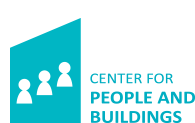What Will the Future of Work Look Like?
24 november 2016

Brief Impression of the Futures Forum Closing Conference in The Hague, November 22, 2016
How will we work in 2025? What do end users regard as important? How do you offer optimal support as a business support function: HRM, ICT or FM/RE?
These are the research questions which have occupied the researchers at CfPB and Hospitality Group over the past year, supported by 12 major business and governmental sponsors. On November 22, their representatives came together at the New World Campus in The Hague to hear the research results, reflect on them, and work on applying the research results to their own organization during a “pre-design” workshop.
Themes for the Near Future
The results were presented using 8 themes: Changing nature of work; Increasing adaptability; Work transitioning to a digital environment; Freedom from stifling strictures; Self-employment and self-marketing; Attachment and involvement; Future employee needs; The office in an era unrestricted by time, location or equipment.
Is Smart and Lazy Better?
André Weimar, Director of National Policy for Purchasing, Facilities and Accommodations (Ministry of the Interior and Kingdom Relations) discussed e.g. how government agencies are working together to create general-purpose government offices where, eventually, any public servant will be able to work, and their value-chain partners as well. A collective approach to make efficient use of limited means.
This was followed by a presentation by economist Prof. (Emeritus) Alfred Kleinknecht. In his analysis, he discussed the relationship between productivity growth and the labor market. A welcome presentation for e.g. Facility Managers searching eagerly for information on the influence of accommodations, services and resources on added value. His closing statement involved the market’s greatest dilemma. Do we choose innovation, with the accompanying job loss, or limited economic growth, but keeping “many hands” at work. Or to put it another way, “It’s better to be smart and lazy, than dumb and hardworking." Food for thought. Read more by Prof. Kleinknecht.
Wim Pullen, director of CfPB, gave an extensive explanation of the research results which will soon to be available in printed form, with the underlying literature review.
Pre-Design Workshop
The majority of the participants in the closing conference had already started working on four of the eight themes induring the morning session. Using methods and ideas from the world of “service design thinking,” they brainstormed by discipline, across disciplines and by organization on a strategic agenda to renew vision, culture and support. This quickly resulted in a wealth of images and solutions to get started with immediately.
Elaboration and Presentations
For some of the participating organizations the project is not yet over; further elaboration of the results awaits. In the coming months, the CfPB and Hospitality Group researchers will present their research results at various locations. For example, an agreement was made with branch organization Facility Management Nederland (FMN) to do so at the Facility for Future event, January 18-20, 2017. Earlier, a presentation to the Dutch national government took place at the Council for Government Property on December 1st. A presentation to the Flemish government will follow in Brussels on January 18th.















